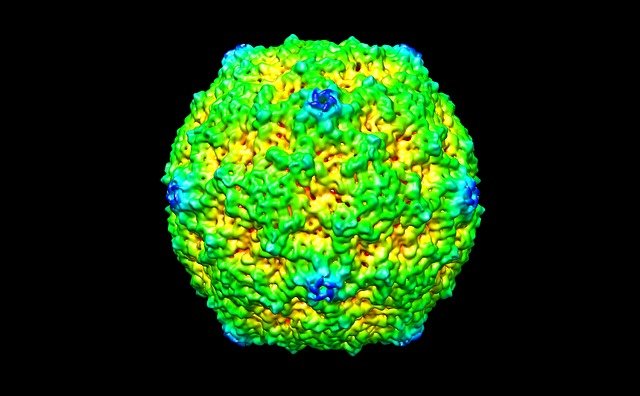
In a recent study, researchers from Northwestern Medicine find that small RNA molecules originally developed as a tool to study gene function trigger a mechanism hidden in every cell that forces the cell to commit suicide.
This is the first study to identify molecules to trigger a fail-safe mechanism that may protect us from cancer.
The mechanism is RNA suicide molecules, which may be developed into a novel form of cancer therapy, the study authors said.
Cancer cells treated with the RNA molecules cannot become resistant to the treatment, because the RNA eliminates genes that cancer cells need for survival.
The team discovered when sequences in the human genome are converted into small double-stranded RNA molecules, it triggers what they believe to be an ancient kill switch in cells to prevent cancer.
This study is published in eLife.
Why are these molecules so powerful?
The researchers explain that ever since life became multicellular more than 2 billion years ago, it had to deal with preventing or fighting cancer.
The kill mechanism would only be active in a single cell the moment it becomes cancerous.
But the team found the mechanism by testing a class of small RNAs, called small interfering (si)RNAs.
Many these small RNAs derived from certain genes did not, as expected, only suppress the gene they were designed against. They also killed all cancer cells.
The team discovered these special sequences are distributed throughout the human genome, embedded in multiple genes.
When converted to siRNAs, these sequences all act as highly trained super assassins. They kill the cells by simultaneously eliminating the genes required for cell survival.
By taking out these survivor genes, the assassin molecule activates multiple death cell pathways in parallel.
This allows cancer cells to be eliminated.
The team tested this in a treatment situation on mice bearing human ovarian cancer.
In the treated mice, the treatment strongly reduced the tumor growth with no toxicity to the mice.
Importantly, the tumors did not develop resistance to this form of cancer treatment. The team is now refining the treatment to increase its efficacy.
The researchers believe that this is how multicellular organisms eliminated cancer before the development of the adaptive immune system, which is about 500 million years old.
They suggest that cancer scientists need to listen to nature more.
Immune therapy has been a success, because it is aimed at activating an anticancer mechanism that evolution developed.
Unfortunately, few cancers respond to immune therapy and only a few patients with these cancers benefit.
This research may be tapping into one of nature’s original kill switches, and they hope the impact will affect many cancers.
Copyright © 2018 Knowridge Science Report. All rights reserved.



